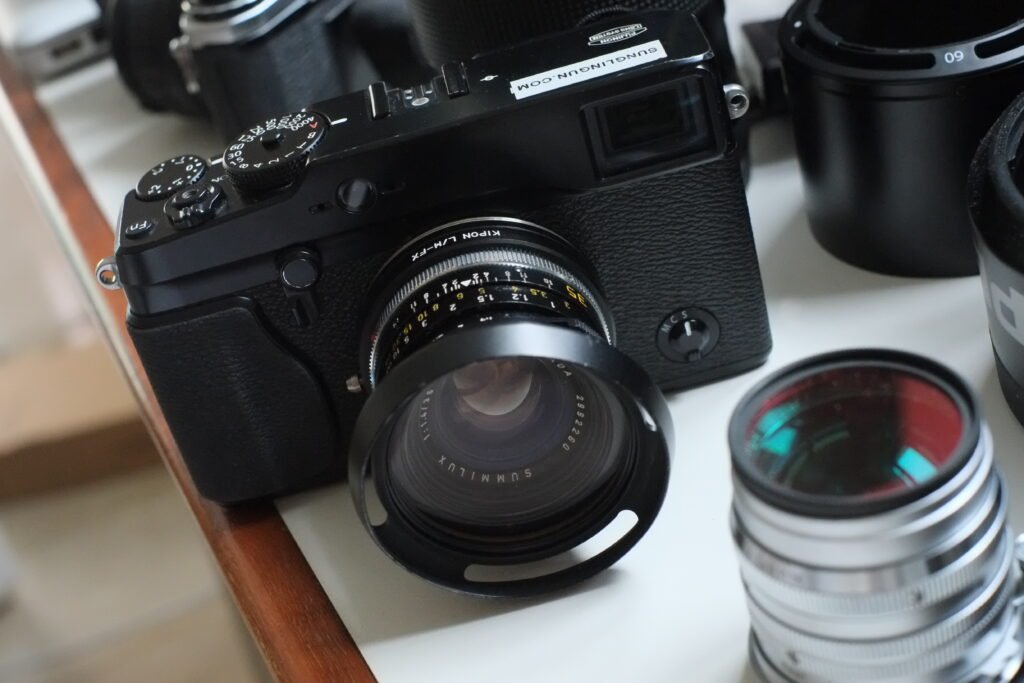The Disappearing X-Pro 1
Portraits Through the X-Pro1: A Camera That Disappears
I’ve used many cameras over the years, but few have felt as human as the Fujifilm X-Pro1. When it comes to portraiture, it’s not always about megapixels or high-speed tracking. It’s about presence — both mine and the subject’s. And in that quiet space between connection and capture, the X-Pro1 was my favorite companion.
An Extension of Hand and Eye
What sets the X-Pro1 apart isn’t just its design — it’s how it feels in use. Light, balanced, and built with thoughtful simplicity, it becomes an extension of my hand. I can change settings without breaking eye contact. I can shoot without the constant reminder that I’m operating a machine.
There’s a directness to it. A quiet confidence. It doesn’t get in the way of the moment — it invites the moment.
The Anti-Intimidation Camera
A large DSLR or a chunky medium format camera often creates a barrier between photographer and subject. It feels clinical. Impersonal. When you raise something that looks like it belongs in a lab, the person in front of you tightens up. But with the X-Pro1, that barrier melts away.
Its compact form, unassuming rangefinder silhouette, and nearly silent shutter allow people to relax. The camera doesn’t dominate the room. It disappears — and that’s when real expression shows up.
I’ve seen it happen over and over again: shoulders drop, eyes soften, and the conversation resumes. The photo becomes a byproduct of connection — not intrusion.
Seeing Without Distraction
The X-Pro1’s hybrid viewfinder allows me to compose thoughtfully while staying connected to the world. With the optical finder, I can keep an eye on what’s just outside the frame. With the EVF, I get precision when I need it. Both allow me to stay immersed — not distracted by screens, overlays, or blinking lights.
I can see the person in front of me — not just through the lens, but through my own rediscovered gaze.
Color, Tone, and Emotion
Fuji’s color science needs no introduction. The X-Pro1, with its older but beautifully characterful sensor, renders skin tones with a warmth and nuance that’s unique. There’s a painterly softness to the files — not overly clinical, never sterile.
For the longest time, I mount a Leica 35mm Summilux on it via a Kipon adapter. Then it’s manual focus all the way!
A Camera That Respects the Subject
At its core, the X-Pro1 helps me do something more than take a picture — it helps me bear witness. It lets me be present. And because of that, my subjects often walk away not just with a portrait, but with something special.
That’s a rare gift in today’s image-saturated world.
Goodbye Friend
The X-Pro1 may not be the fastest or most advanced camera on the market. But when it comes to portraiture with soul, it excels in a way few digital tools do. It allows me to connect — not only with the sitter, but with myself as an artist. It’s not just a camera. It’s a conversation. It was a sad day when I had to sell both the camera and the lens.

 Previous post
Falling in Love Again
Previous post
Falling in Love Again
 Next post
The Quiet Romantic
Next post
The Quiet Romantic

